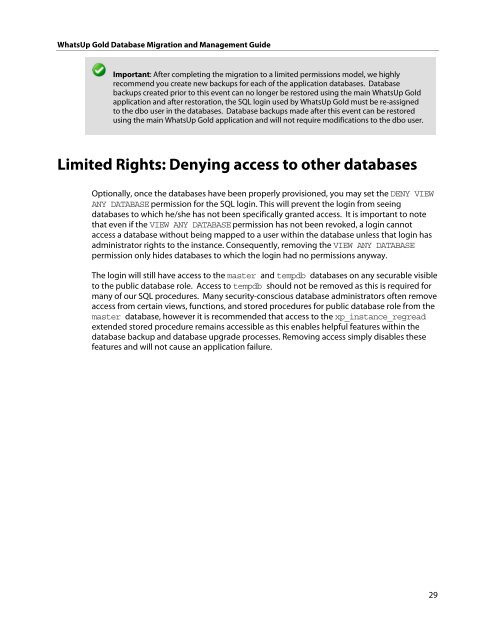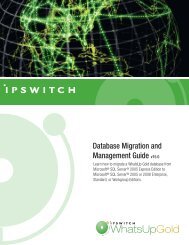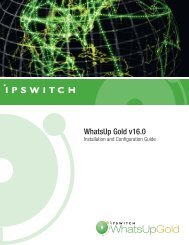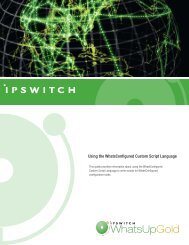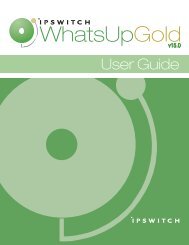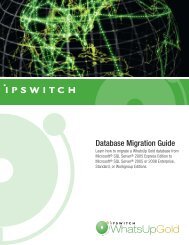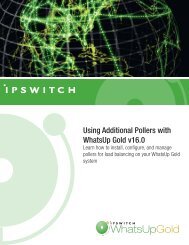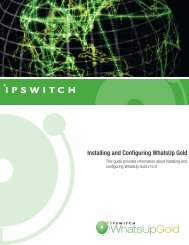WhatsUp Gold v16.0 - Ipswitch Documentation Server
WhatsUp Gold v16.0 - Ipswitch Documentation Server
WhatsUp Gold v16.0 - Ipswitch Documentation Server
Create successful ePaper yourself
Turn your PDF publications into a flip-book with our unique Google optimized e-Paper software.
<strong>WhatsUp</strong> <strong>Gold</strong> Database Migration and Management Guide<br />
Important: After completing the migration to a limited permissions model, we highly<br />
recommend you create new backups for each of the application databases. Database<br />
backups created prior to this event can no longer be restored using the main <strong>WhatsUp</strong> <strong>Gold</strong><br />
application and after restoration, the SQL login used by <strong>WhatsUp</strong> <strong>Gold</strong> must be re-assigned<br />
to the dbo user in the databases. Database backups made after this event can be restored<br />
using the main <strong>WhatsUp</strong> <strong>Gold</strong> application and will not require modifications to the dbo user.<br />
Limited Rights: Denying access to other databases<br />
Optionally, once the databases have been properly provisioned, you may set the DENY VIEW<br />
ANY DATABASE permission for the SQL login. This will prevent the login from seeing<br />
databases to which he/she has not been specifically granted access. It is important to note<br />
that even if the VIEW ANY DATABASE permission has not been revoked, a login cannot<br />
access a database without being mapped to a user within the database unless that login has<br />
administrator rights to the instance. Consequently, removing the VIEW ANY DATABASE<br />
permission only hides databases to which the login had no permissions anyway.<br />
The login will still have access to the master and tempdb databases on any securable visible<br />
to the public database role. Access to tempdb should not be removed as this is required for<br />
many of our SQL procedures. Many security-conscious database administrators often remove<br />
access from certain views, functions, and stored procedures for public database role from the<br />
master database, however it is recommended that access to the xp_instance_regread<br />
extended stored procedure remains accessible as this enables helpful features within the<br />
database backup and database upgrade processes. Removing access simply disables these<br />
features and will not cause an application failure.<br />
29


